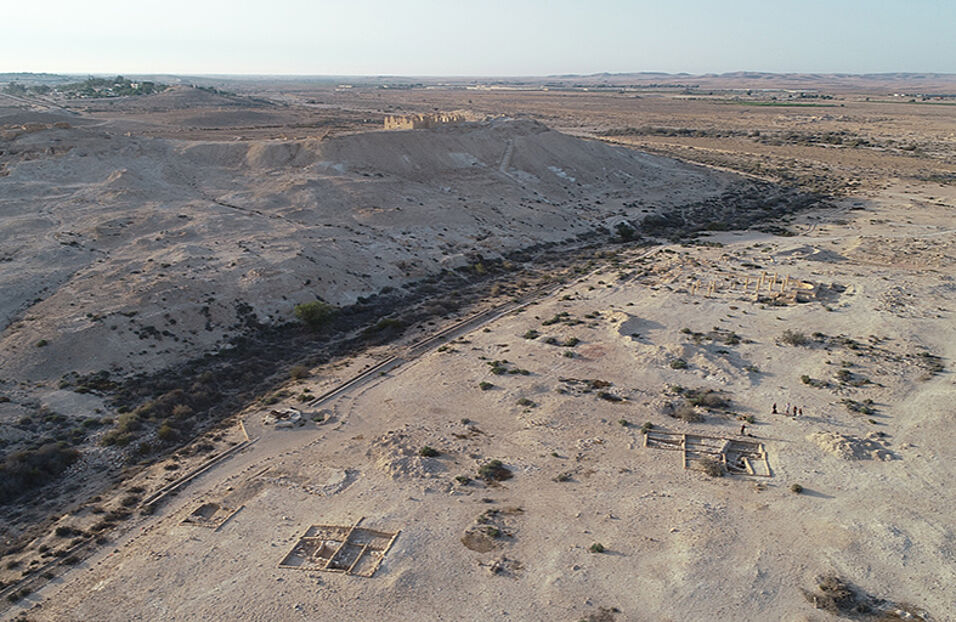H Y B R I D - V O R T R A G
Dr. Yana Tchekhanovets (Ben Gurion University of the Negev Israel)
Di, 24.1.2023, 18 Uhr s. t.
The ancient settlement of Nessana, located in the south-western Negev, on the modern Israeli–Egyptian border, may serve as a key site for study of early Christian pilgrimage. Established in the Hellenistic period, it later turns into a Roman garrison site, and reaches it peak during the Byzantine and Early Islamic period (5th – 7th centuries CE). Serving the main caravan hub on the Christian sacred journeys road from the Holy Land to Sinai, Nessana enjoys all the economic benefits of the pilgrimage, and turns into flourishing urbanized village, with caravanserais and numerous churches. Nessana ancient remains were explored by numerous researchers starting from the late 19th century; the expedition of the British School of Archaeology in Jerusalem, leaded by H.D. Colt (1935–1937), uncovered the remains of military fort and two monumental churches, both preserving the archives of papyri, written in Greek and Arabic and dated to the sixth–seventh centuries. Survived thanks to the arid climate, the papyri - private and official documents, literary and military texts, - kept precious information on life and economy of the site, names of some of its residents, their involvement in local agriculture and pilgrimage, and also revealed the ancient name of the village: Νεσάνα. The renewed excavations at the site which started in summer 2022 by the Ben Gurion University of the Negev, will focus on the problematics of the archaeology of pilgrimage.
Link zum Vortrag (wird um 17:50 h aktiviert)
Aushang pdf-download

